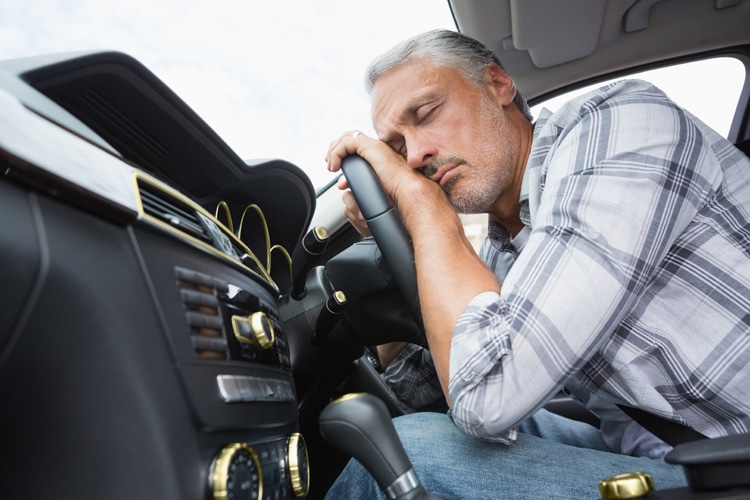Whether you’re a road trip enthusiast, experiencing an unexpected housing crisis, or simply need a quick nap during a long drive, understanding the legality of sleeping in your car in Arizona is essential. Arizona’s laws, particularly those concerning driving under the influence (DUI), leave ample room for interpretation and the potential for unintended legal consequences. This article aims to shed light on the complexities of car sleeping in Arizona to help you navigate the situation safely and within legal bounds.
Arizona’s DUI Laws and “Actual Physical Control”
Arizona takes a particularly stringent approach to DUI laws. The key concept to be aware of is “actual physical control.” This means that even if you are not actively driving, you can still be charged with a DUI if you are deemed to have the capability of operating your vehicle while under the influence of alcohol or drugs.
How does this relate to car sleeping? If you are found sleeping in your car with the keys readily accessible (even if the engine is not running), you could be considered in “actual physical control” of the vehicle. The prosecution might argue that, in an intoxicated state, you could have started the car and driven away, potentially endangering yourself and others.
Where You Can and Cannot Sleep in Your Car
The legalities surrounding car sleeping in Arizona largely depend on the location and whether you’re on public or private property.
- Public Property
- Rest Stops: Arizona’s rest stops are typically safe havens for overnight sleeping in your car. Ensure you adhere to posted time limits and avoid setting up camp outside of your vehicle.
- BLM Land (Bureau of Land Management): Vast areas of BLM land in Arizona offer dispersed camping opportunities, often free of charge. Be mindful of specific regulations and stay durations.
- National Forests: Much like BLM land, Arizona’s national forests like Tonto National Forest or Coconino National Forest generally allow overnight car sleeping with certain rules. Always check with the appropriate ranger station.
- Private Property
- Parking Lots: Businesses like Walmart are sometimes known for being accommodating to overnight sleepers. However, it’s vital to always seek permission from the store manager or property owner. Don’t assume it’s automatically permitted.
- With Explicit Permission: If you have friends or family in Arizona with private property, sleeping in your car is likely permissible on their land with their consent.
- City Ordinances
- Phoenix: Phoenix has specific ordinances that restrict sleeping in public places, including vehicles. It’s advisable to avoid car sleeping within city limits. (https://www.phoenix.gov/)
- Tucson: Tucson may have regulations regarding sleeping in cars within city limits and on public property. Check the city website for up-to-date information. (https://www.tucsonaz.gov/)
- Smaller Towns and Cities: Always research the specific ordinances of any smaller town or city in Arizona you plan to stay in.
Tips for Safe and Legal Car Sleeping in Arizona
- Minimize the Appearance of Intoxication: To avoid potential DUI charges, move your car keys to an inaccessible location like the trunk or glove box. Avoid keeping them in the ignition or within easy reach.
- Park Discreetly: Choose a well-lit but less conspicuous location away from main thoroughfares. Opt for areas less likely to draw attention.
- Practice Good Ventilation: Slightly crack your windows for airflow while maintaining your safety and privacy.
- Stay for Short Periods: Don’t overstay your welcome, even in permissible areas. Move to a different location after a couple of nights at most.
- Be Respectful: Leave your parking area as undisturbed as you found it. Do not litter, make excessive noise, or create disturbances.
Addressing Homelessness and Car Sleeping
It’s important to recognize that car sleeping is often a symptom of a larger issue: homelessness. If you or someone you know is experiencing housing instability, here are some valuable Arizona resources:
- Arizona Department of Housing: Provides assistance programs and information on affordable housing options. (https://housing.az.gov/)
- 2-1-1 Arizona: Connects individuals to community resources, shelters, and support services across the state. (https://211arizona.org/)
- Local Shelters and Homeless Outreach Programs: Cities like Phoenix and Tucson often have shelters and organizations dedicated to assisting those experiencing homelessness. Search online or contact your local 2-1-1 service for information.
Conclusion
While sleeping in your car can sometimes provide a temporary solution, understanding the legal complexities in Arizona is paramount. By choosing your locations carefully, taking steps to minimize the risk of legal trouble, and being aware of available resources, you can make more informed decisions about your safety and well-being.
Important Disclaimer: This article provides general information and should not be interpreted as legal advice. Laws and regulations are subject to change, and it is always best to consult with an attorney or legal professional for specific guidance related to your situation.
Sources
- Arizona Revised Statutes Title 28 Transportation – DUI Section: https://www.azleg.gov/ars/28/01381.htm
- Cornerstone Healing Center – Arizona DUI While Sleeping in a Car: https://cornerstonehealingcenter.com/arizona-dui-while-sleeping-in-a-car/



